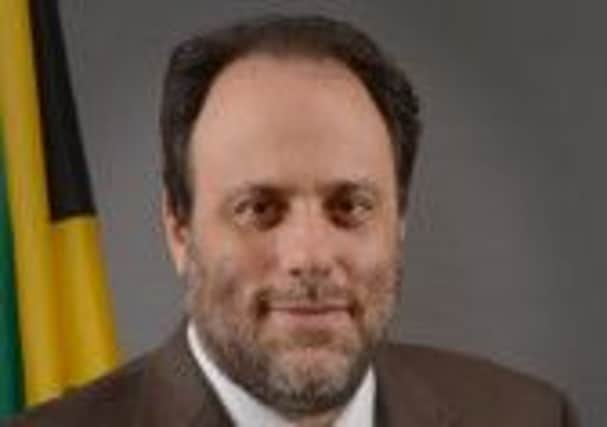Jamaica drafts law to lift ban on use of marijuana


Mark Golding told reporters that parliament should make possession of two ounces or less a petty offence before the end of 2014.
He also expects decriminalisation for religious purposes to be authorised by then, allowing adherents of the homegrown Rastafarian spiritual movement to ritually smoke marijuana – which they consider a “holy herb” – without fear of arrest.
Advertisement
Hide AdAdvertisement
Hide AdMr Golding said it would take longer to agree on more complex changes to Jamaica’s Dangerous Drugs Act needed to spur a medical marijuana and cannabis research sector. He said Jamaica, where scientists developed a cannabis-derived medication to treat glaucoma decades ago, is “well-positioned to be a forerunner” in efforts to research therapeutic uses of the plant.
As Jamaica advances marijuana decriminalisation, the government is committed to battling drug traffickers, Mr Golding stressed.
He said keeping marijuana away from children, the international black market and organised crime would remain a top priority.
Previous efforts to decriminalise marijuana, or “ganja” as it is commonly known in Jamaica, failed to advance because Jamaican officials feared they would violate international treaties and bring sanctions from the United States. But those concerns have eased now that a number of nations and some US states have relaxed marijuana laws.
Mr Golding said the regulatory framework needed for a medical marijuana and research industry in Jamaica was still being mulled over.
Setting maximum limits on marijuana cultivation is not anticipated, he said, but the government wants to ensure that small farmers “were not excluded and it does not just become something exclusively for major capital-intensive investors”.
Ethan Nadelmann, head of the non-profit Drug Policy Alliance, a pro-legalisation group based in New York, called Mr Golding’s announcement a “significant step forward”.
“[It’s] both noteworthy in that Jamaica is reforming policies on possession, religious use and medical use at more or less the same time, and politically important in providing leadership in the Caribbean,” he said.
Advertisement
Hide AdAdvertisement
Hide AdA recent preliminary report by the Caribbean Community of 15 nations and territories said medical marijuana could help boost the region’s economy.
Currently in Jamaica, cultivation, retail and consumption is illegal. However this is often overlooked and cannabis is sold openly.
On 8 October 2013, the House of Representatives passed a motion to decriminalise possession of small amounts of the drug, a move which led to the latest ruling.
The legality of cannabis for general or recreational use varies around the world. Possession of cannabis is illegal in most countries as a result of the agreement about Indian hemp, also known as hashish, in the International Opium Convention of 1925.
However, many countries have decriminalised possession of small quantities of cannabis
In the Netherlands, cannabis products are only sold openly in certain local “coffeeshops” and possession of up to five grams for personal use is permitted.